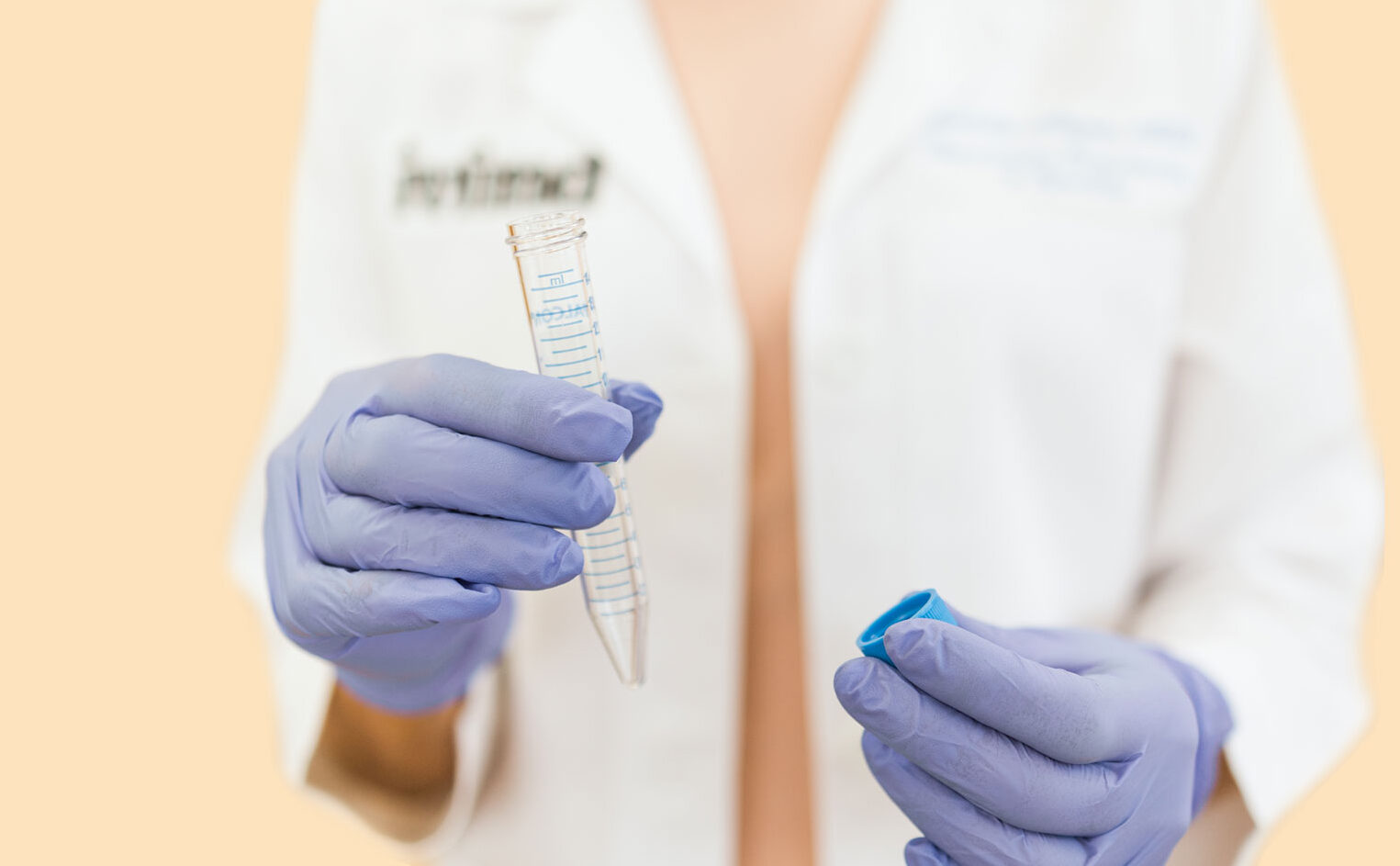Expert-led, evidence-based IVF care.
Scientific collaboration
Through our affiliation with Fertility Specialists Network, our embryologists and laboratory directors collaborate closely with experts from across the nation to share the latest advancements in IVF protocols to ensure that our patients are receiving the most up-to-date, evidence-based care possible. Our Laboratory Director, Sheela Ali, PhD, HCLD, CC, TS, is the network-wide Scientific Director, bringing insights and best laboratory practices from across the nation to our IVFMD clinic locations.
State-of-the-art equipment
Our IVF lab features state-of-the-art equipment used to enhance the outcomes of assisted reproductive techniques. Our lab team collaborates closely with our physicians to develop personalized treatment plans that maximize the chances of success based on unique patient history. At IVFMD, we are constantly pursuing the latest innovations to improve success rates and increase the chances of healthy pregnancies for our patients.
Quality control and patient success
Our embryology team is guided by detailed quality control measures and continually pursues excellence in maintaining the highest standards of IVF laboratory practices. With the integration of advanced embryo selection techniques, like preimplantation genetic testing (PGT), our lab team is able to enhance the likelihood of successful implantation and minimize the risk of genetic disorders.
Get to know our IVF lab team
IVFMD’s reproductive endocrinology laboratory is led by some of the most distinguished and well-experienced fertility experts in Texas and the United States. Get to know the faces behind the IVF laboratory processes and procedures at IVFMD.
IVF Lab FAQ
Explore more about what makes an IVF lab successful and how IVFMD’s laboratory aids in creating exceptional patient outcomes for individuals and couples in Texas.
What is an IVF lab?
An In Vitro Fertilization (IVF) lab, also known as an embryology laboratory or reproductive laboratory, is a specialized facility within a fertility clinic or medical center that plays a central role in the IVF process. It is a highly controlled environment designed for the handling, processing, and cultivation of eggs, sperm, and embryos for assisted reproductive technologies, including IVF. Some key fertility treatment activities that occur in an IVF laboratory include:
Egg Retrieval: After a woman undergoes ovarian stimulation, her eggs are collected in a minimally invasive procedure called oocyte retrieval. The IVF lab is where these eggs are received, cleaned, and prepared for fertilization.
Sperm Processing: Sperm from either the male partner or a sperm donor is prepared and processed in the lab. This may involve selecting the healthiest sperm for fertilization.
Fertilization: In the IVF lab, the selected sperm is introduced to the retrieved eggs to facilitate fertilization. This can be done through conventional insemination, where sperm is placed near the eggs, or through Intracytoplasmic Sperm Injection (ICSI), which involves injecting a single sperm directly into an egg.
Genetic Testing: For individuals or couples undergoing genetic screening of embryos, the IVF lab is where biopsies are performed, and the genetic material is sent for analysis.
Cryopreservation: Embryos not immediately transferred to the uterus may be cryopreserved (frozen) for later use. The IVF lab manages the freezing and storage of embryos and eggs.
Quality Control: The lab maintains strict quality control measures to ensure the integrity of all specimens and procedures. This includes monitoring temperature, humidity, and other environmental factors.
Data Management: An IVF lab keeps meticulous records of each patient’s specimens and procedures, ensuring accurate tracking and adherence to the treatment plan.
What makes an IVF laboratory successful?
The success of IVF procedures is highly dependent on the competence and quality of the IVF lab, as well as the expertise of the embryologists and other professionals working within it. Patients and fertility specialists rely on the IVF lab to provide the best possible conditions for the creation and selection of embryos, which are then transferred to the uterus to achieve a pregnancy.
Why is it important to choose an exceptional IVF lab?
The IVF lab is a critical component of fertility treatments and is equipped with advanced technology and staffed by highly trained professionals, including embryologists, to ensure the success of IVF procedures. Choosing a fertility clinic with a reputable IVF lab is investing in your best chances of achieving your dream of parenthood. The lab’s role is fundamental in the IVF process, and its quality and capabilities are pivotal to your journey. By ensuring that the clinic’s IVF lab is of exceptional quality, you are taking a significant step toward a successful fertility treatment.




